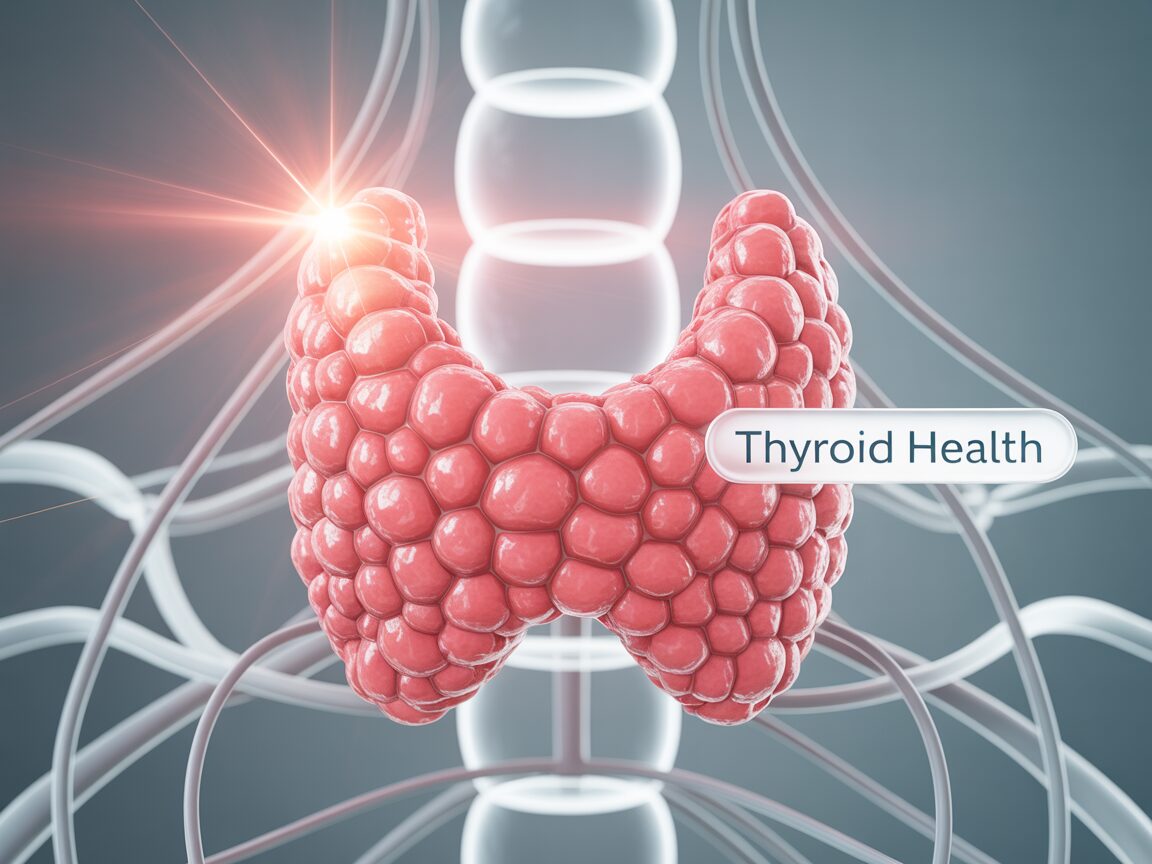Thyroid Health: Are There Missing Pieces to Your Thyroid Health? Complete Guide
For those unfamiliar, the thyroid is a butterfly-shaped gland located in your neck. Despite its small size, this gland plays a mighty role in regulating nearly every process in the body. When your thyroid is sluggish, your entire body slows down; when it’s overactive, everything speeds up. This is why thyroid health is fundamental to overall well-being.
During my time as a student intern, I was surprised by how common thyroid disease is and how many people are prescribed synthetic thyroid hormones like Synthroid or Levothyroxine. Many patients come in with various complaints, yet thyroid issues are often not their primary concern, highlighting how pervasive and sometimes overlooked thyroid health problems are.
The prevalence of hypothyroidism (underactive thyroid) is alarming. Synthetic T4 medications rank among the top prescribed drugs, second only to statins, which underscores the widespread nature of thyroid dysfunction.
Recently, a prospective patient mentioned having “thyroid stuff” but otherwise considered herself healthy. This casual attitude toward thyroid health reflects a common experience in conventional medicine, where patients often receive limited options beyond medication.
The Complexity of Diagnosing Thyroid Health Issues
Diagnosing hypothyroidism is not always straightforward. The standard diagnostic marker is Thyroid Stimulating Hormone (TSH), with levels above 4.50 typically indicating hypothyroidism. However, TSH levels between 4.50 and 7 or even 10 with normal T4 are considered subclinical hypothyroidism. Studies show that about 46% of people in this range spontaneously return to normal thyroid function without intervention (JAMA, Papaleontiou & Cappola, 2016).
This gray area can confuse both patients and doctors. Many patients don’t even know their TSH levels when prescribed thyroid medication, which raises concerns about how well thyroid health is managed.
TSH is just a snapshot in time, fluctuating throughout the day and influenced by many factors. Transient elevations can occur due to stress, illness, or other temporary conditions. A thorough evaluation of thyroid health requires considering symptoms, lab trends, and individual context.
Understanding Thyroid Health: Common Issues and Diagnostic Challenges
Why Medication Isn’t Always the Complete Answer for Thyroid Health. If you have hypothyroidism and are on medication but feel little improvement, your treatment might be based solely on lab values rather than your symptoms. Many thyroid issues stem from gut health problems, which affect nutrient absorption and the body’s ability to convert T4 (inactive thyroid hormone) into T3 (active hormone).
Poor conversion means that even if your TSH is normalized with medication, your body may not be getting enough active hormone to function properly. This highlights the importance of thyroid health beyond just hormone replacement.
Mineral status—such as selenium, zinc, and iodine—is crucial for thyroid function. Additionally, hormone balance, especially in women, impacts thyroid health significantly. Addressing these factors can improve symptoms and overall quality of life.
 Thyroid Health Solutions: Beyond Lab Tests and Medication
Thyroid Health Solutions: Beyond Lab Tests and Medication
Holistic Approaches to Supporting Thyroid Health, If you feel your thyroid care is falling short, consider consulting a provider who looks at your case holistically. This may include:
Comprehensive thyroid panels beyond TSH, including free T3, free T4, reverse T3, and thyroid antibodies
Assessing gut health and nutrient absorption
Evaluating mineral and vitamin status critical for thyroid function
Considering lifestyle factors such as stress, sleep, and diet
Supporting liver health for hormone detoxification
Integrative approaches can uncover missing pieces to your thyroid health puzzle and offer personalized strategies beyond standard medication.
Maintaining optimal thyroid health is a lifelong journey that extends beyond medication and lab tests. Lifestyle factors play a significant role in supporting thyroid function and overall well-being. For example, chronic stress can disrupt the hypothalamic-pituitary-thyroid (HPT) axis, leading to imbalances in thyroid hormone production. Incorporating stress management techniques such as mindfulness, yoga, or deep-breathing exercises can help regulate this axis and improve thyroid function.
Nutrition is another cornerstone of thyroid health. Consuming a balanced diet rich in selenium, iodine, zinc, and vitamins D and B12 supports hormone synthesis and conversion processes. Foods like Brazil nuts, seaweed, pumpkin seeds, and fatty fish are excellent natural sources of these nutrients. However, it’s important to avoid excessive intake of goitrogens found in raw cruciferous vegetables (like kale and broccoli) if you have thyroid dysfunction, as they can interfere with hormone production when consumed in large amounts.
Exercise also benefits thyroid health by boosting metabolism, improving circulation, and reducing inflammation. Even moderate, consistent physical activity can enhance energy levels and mood, which are often affected by thyroid imbalances.
Finally, regular monitoring and open communication with your healthcare provider are essential. Thyroid conditions can evolve over time, and treatment plans should be adjusted accordingly. If you feel your current care isn’t addressing your symptoms or concerns, seeking a second opinion or working with an integrative specialist can provide a more comprehensive approach to your thyroid health.
Remember, your thyroid is a small gland with a big impact. By understanding the many factors influencing its function and taking proactive steps, you can reclaim yourenergy, balance, and quality of life.


 Thyroid Health Solutions: Beyond Lab Tests and Medication
Thyroid Health Solutions: Beyond Lab Tests and Medication
